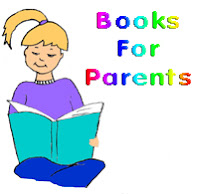Want to learn more about parenting the gifted? Read some of
the following books (in alphabetical order):
Being Smart about Gifted Children: A Guidebook for Parents and Educators, by Dona J. Matthews and Joanne F. Foster
The authors describe ways to develop children's natural
abilities.
What it means to be young, Black, and gifted, and how
families can help gifted children to understand their differences, navigate
complex peer relationships, find their rightful place in community, and make
best use of the school system.
Emotional Intensity in Gifted Students, by Christine Fonseca
Helps parents to not
only understand why gifted children are so extreme in their behavior, but also
learn specific strategies to teach gifted children how to live with their
intensity.
Helping Gifted Children Soar: A Practical Guide for Parents and Teachers, by Carol Ann Strip
This user friendly guidebook educates parents and teachers
about important gifted issues, an ideal resource for the beginner to seasoned
veteran in educating gifted children.
Homeschooling Gifted and Advanced Learners, by Cindy West
Focuses on special considerations
that often go along with gifted children such as providing challenging
curriculum, offering outlets for artistic and creative talents, accelerating
students into college courses early, and finding them true intellectual peers.
On the Social and Emotional Lives of Gifted Children, 4th ed., by Tracy Cross
In a thoughtful,
conversational style, the author offers an in-depth look at the complex social
and emotional issues faced by gifted children.
Parenting Gifted Children: The Authoritative Guide From the National Association for Gifted Children, Editors: Jennifer L. Jolly, Donald J. Treffinger, Tracy
F. Inman, and Joan Franklin Smutny
This comprehensive guide covers topics such as working with high achievers and young gifted children, acceleration, advocating for talented students, serving as role models and mentors for gifted kids, homeschooling, underachievement, twice-exceptional students, and post-secondary opportunities.
This comprehensive guide covers topics such as working with high achievers and young gifted children, acceleration, advocating for talented students, serving as role models and mentors for gifted kids, homeschooling, underachievement, twice-exceptional students, and post-secondary opportunities.
Parenting Gifted Kids: Tips for Raising Happy and Successful Gifted Children, by James R. Delisle
Provides a humorous, engaging, and encouraging look at
raising gifted children today with practical, down-to-earth approaches. Goes
beyond the basics, focusing on attitude, reflection, and subtle changes, rather
than specific, cookie-cutter recipes for action.
Parent's Guide to IQ Testing and Gifted Education, by David Palmer
Great introduction to IQ testing and gifted children.
Answers your questions, from “Why test?” to “What do the scores mean?” and
“What about scores of twice exceptional children?”
Parent's Guide to Raising a Gifted Child, by James Alvino
A practical, informative, and authoritative primer for
raising and educating gifted children from preschool to adolescence. Beginning
with sensible strategies to determine whether, and in which area, your child is
gifted, this book takes parents through selecting an appropriate day-care
center, a school, and a home reference library.
Raising a Gifted Child: A Parenting Success Handbook, by Carol Fertig
This book offers a large menu of strategies, resources,
organizations, tips, and suggestions for parents to find optimal learning opportunities
for their kids, covering the gamut of talent areas, including academics, the
arts, technology, creativity, music, and thinking skills.
They Say My Kid's Gifted: Now What? by F. Richard Olenchak
Offers background and advice from the identification
process, to choosing a teacher, to gifted programs and curriculum.
Your Gifted Child: How to Recognize and Develop theSpecial Talents in Your Child from Birth to Age Seven, by Joan Smutney, Kathleen Veekner and Stephen Veekner
How to recognize giftedness, from the obvious signs such as
advanced language, math and motor skills, to the less obvious ones such as
sense of humor, good memory and active imagination. The book also offers a
variety of age-appropriate techniques to stimulate your child's curiosity.

No comments:
Post a Comment
Your comments will be available after approval.